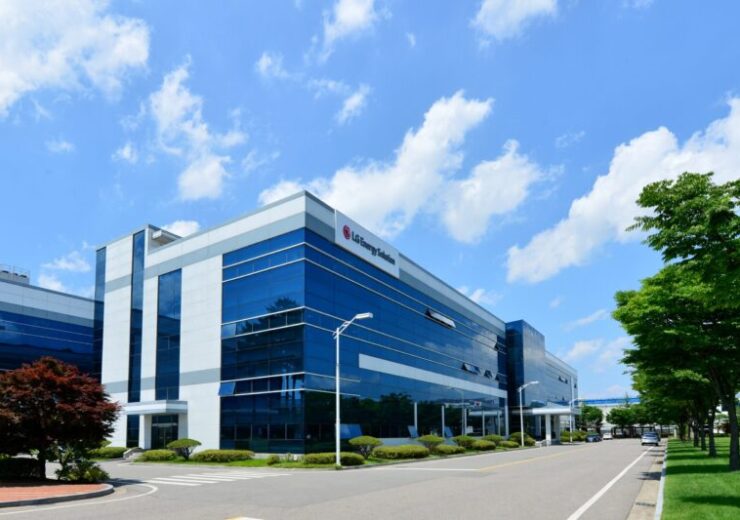Through the investment, the company aims to expand the battery manufacturing facilities at its Ochang plants in Cheongju, North Chungcheong Province

LGES plans to invest $3.1bn to expand the battery manufacturing facilities at its Ochang plants. (Credit: LG Energy Solution)
LG Energy Solution (LGES) reportedly plans to invest KRW4 trillion ($3.1bn) in electric vehicle (EV) battery manufacturing in South Korea through 2026.
Through the investment, the company will expand the battery manufacturing plants at its Ochang facilities in Cheongju in the province of North Chungcheong, reported The Korea Herald.
The EV battery project is expected to include research and development (R&D) and production facilities and related infrastructure.
The South Korean battery manufacturing firm is anticipated to generate about 1,800 jobs.
An LG Energy Solution spokesperson, has been quoted by Reuters, as saying: “We plan to set up a diversified product portfolio including pouch-type and cylindrical batteries to respond to customer needs in a timely manner, and differentiate production capabilities based on a ‘smart’ factory.”
According to multiple reports, the company will expand and upgrade the cylindrical battery production lines along with developing additional infrastructure at the Ochang factory.
Besides, by introducing smart factory features including remote support, intellectualisation of manufacturing and automation of logistics, the South Korean battery manufacturing firm plans to boost productivity at the new assembly lines.
In April 2022, the company revealed its plans to invest nearly KRW7 trillion ($5.54bn) in global capital expenditures in 2022 to maximise its battery manufacturing capacity.
LG Energy Solution estimated an annual production capacity of 200GWh for 2022 and to reach 520GWh by the year 2025.
Recently, LG Energy Solution and Hyundai Motor Group were reported to be considering plans to develop two joint venture (JV) battery plants in the US.
The companies are planning to build battery manufacturing facilities in Georgia with each having an annual capacity of nearly 35GWh to power approximately one million EVs.


